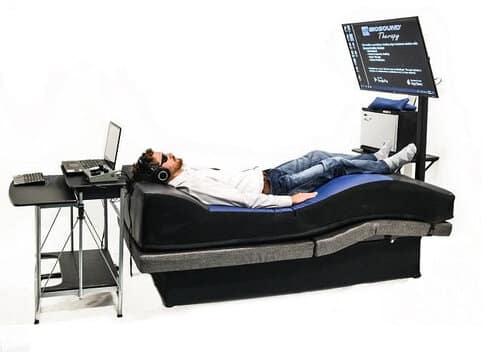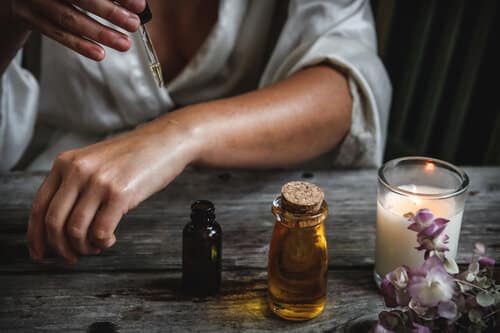Request a Callback
PCP
Reclaiming your life from PCP addiction is possible. By understanding the underlying causes of addiction and accessing appropriate treatment, we can pave the path to recovery and long-term wellness.
At Relevance Recovery, will also address the unique challenges that individuals with dual diagnosis – simultaneous substance abuse and mental health disorders – face during PCP treatment.
Let’s embark this journey!
What Is PCP And Why Is Treatment Necessary?
PCP, also known as Phencyclidine, gained popularity in the 1960s as a surgical anesthetic but was later discontinued due to its severe side effects. As a dissociative drug, PCP can induce hallucinations, distorted perceptions, and intense feelings of detachment from reality. It also comes with a range of physical and psychological risks, making proper treatment essential.
The effects of PCP are unpredictable, and individuals under its influence may engage in dangerous and aggressive behavior. This can lead to self-harm, harm to others, and legal consequences. Treatment becomes necessary to address the physical and mental health complications that arise from PCP abuse.
Studies have shown that long-term PCP use can cause memory loss, depression, and anxiety. Additionally, substance abuse often coexists with mental health disorders such as depression, bipolar disorder, or schizophrenia. Treating PCP addiction, therefore, requires a comprehensive approach that addresses both substance abuse and mental health challenges.
We Work With Most Major Insurance Providers
- Aetna
- Amerihealth
- Anthem
- Beacon
- Behavioral Health Systems
- BCBS—Most BlueCross & BlueShield Plans
- Carelon Behavioral Health
- CareFirst
- Cigna
- ComPsych
- Coventry
- Empire BlueCross BlueShield
- GHI
- Highmark
- Humana
- Magellan
- MagnaCare
- Meritain Health
- MultPlan
- NYSHIP (New York State Insurance Plan)
- Optum
- Oxford
- PHCS
- Self-Pay
- TRICARE
- UHC
- UMR
- VA Insurance
- 90 Degree Benefits
- Aetna
- Amerihealth
- Anthem
- Beacon
- Behavioral Health Systems
- BCBS—Most BlueCross & BlueShield Plans
- Carelon Behavioral Health
- CareFirst
- Cigna
- ComPsych
- Coventry
- Empire BlueCross BlueShield
- GHI
- Highmark
- Humana
- Magellan
- MagnaCare
- Meritain Health
- MultPlan
- NYSHIP (New York State Insurance Plan)
- Optum
- Oxford
- PHCS
- Self-Pay
- TRICARE
- UHC
- UMR
- VA Insurance
- 90 Degree Benefits
At this time, we do not accept Medicaid or Medicare.
Relevance saved my life. Everyone here is so helpful and genuine. I highly highly recommend!
This program was absolutely life changing. It fully brought me out of a dark tunnel and into a fresh perspective of enlightenment.
Coming from another treatment center from southern Jersey, I was really anxious and afraid, being completely out of my element, it felt like I was a fish out of water. Relevance’s team really made me feel comfortable while I was being treated, and I thank them for that. I felt really supported and cared for during the time I attended program!
Grateful for Relevance and their open door to seek the treatment I needed.
Great place! All the people are friendly and the staff helped me greatly in my recovery.
This place is a wonderful place to better yourself if you’re looking for a place that still feels like reality. You are not isolated from the rest of the world, but working on yourself within it. Most of the employees here really make an effort to help you, and the atmosphere is wonderful! I’m so greatful for this place
Relevance was such a welcoming environment every day. Staff was amazing supportive and caring. Definitely helped me prepare for life after treatment.
Signs Of PCP Addiction
The effects of PCP vary depending on the dose, method of use, and individual factors. Common signs of PCP addiction include:
- Intense cravings for PCP
- Increased tolerance, requiring higher doses to achieve the desired effects
- Neglecting personal and professional responsibilities
- Withdrawal symptoms when attempting to quit or reduce PCP use
- Engaging in risky behaviors while under the influence


Symptoms Of PCP Addiction
In addition to PCP addiction, individuals with dual diagnosis may exhibit symptoms related to mental health disorders. These can include:
- Persistent sadness or hopelessness
- Extreme mood swings
- Changes in sleep patterns
- Difficulty concentrating or making decisions
- Social withdrawal and isolation
If you or someone you know is experiencing these symptoms, it is crucial to seek professional help for a comprehensive assessment and diagnosis.
The Importance Of Seeking Professional Help For PCP Addiction
Seeking professional help for PCP addiction and mental health challenges is vital for several reasons.
- Professionals trained in addiction medicine can assess the severity of the addiction, identify any co-occurring mental health disorders, and develop a personalized treatment plan.
- Withdrawal from PCP can cause severe physical and psychological symptoms, including hallucinations, paranoia, and suicidal thoughts. Medical supervision is essential to ensure the safety and well-being of individuals going through the detoxification process.
- Professional treatment provides a supportive environment where individuals can learn coping mechanisms, develop healthy habits, and address the underlying causes of addiction and mental health challenges.
The Role Of Therapy In PCP Treatment
Therapy is a cornerstone of PCP treatment, helping individuals address the underlying causes of addiction, develop coping strategies, and manage mental health challenges. Different therapeutic approaches can be utilized, depending on the individual’s needs and goals.
Cognitive Behavioral Therapy (CBT) focuses on identifying and changing negative thought patterns and behaviors. It helps individuals develop healthier coping mechanisms, challenge distorted beliefs, and build resilience. CBT can be effective in treating PCP addiction and co-occurring mental health disorders.
Dialectical Behavioral Therapy (DBT) is another effective therapeutic approach for individuals with PCP addiction and mental health challenges. DBT emphasizes skills training in four key areas: mindfulness, distress tolerance, emotion regulation, and interpersonal effectiveness. It equips individuals with the tools to manage intense emotions, improve relationships, and navigate challenging situations.
Other therapeutic modalities that may be utilized in PCP treatment include motivational interviewing, family therapy, and group therapy. The best approach will depend on the individual’s unique needs, preferences, and treatment goals.


We believe in Holistic Therapies.

Biosound Therapy
Biosound Therapy is the integration of Biofeedback, Therapeutic Music, sound healing massage, and guided imagery. The guided imagery selections on the Biofeedback Bed are designed to address the guilt, fear, shame and trauma associated as underlying issues for most dealing with addiction. These moving meditations begin with a journey to a completely relaxed state of mind. Then, utilizing a unique echo effect, powerful and positive affirmations are delivered. This combination helps the client overcome those deep rooted, negative patterns of thought and behavior.
- Relieves pain & stress
- Assists with Detoxification Treatment
- Lowers cravings, impulse behavior and racing thoughts
- Lowers anxiety & depression

Equine Psychotherapy
Equine-Assisted Therapy is used to treat patients challenged with everything from drug and alcohol abuse dependency and post-traumatic stress syndrome. The therapy takes advantage of the mental and physical exercise that working with a horse can provide. Equine therapy:
- Helps clients learn to identify and cope with feelings
- Promotes Effective Communication Skills
- Helps Addicts Better Manage Behavior
- Teaches How to Set Boundaries
- Restores Self-Esteem and Self-Worth
*This is an optional, additional therapeutic therapy available after clinical treatment hours.

Massage Therapy
Clients at Relevance receive weekly massage therapy from our Licensed Therapists. Some additional benefits include:
- Release of ‘feel-good’ hormones. According to the American Massage Therapy Association (AMTA), massage helps to increase serotonin and dopamine (feel-good hormones) and decrease cortisol which is related to stress.
- Reduce agitation and anxiety and ease sleep problems.
- Provides a natural, alternative method of healing, free of drugs.
- Helps with the removal of metabolic waste. Therapeutic massage triggers or stimulates the body’s parasympathetic nervous system. This in turn can increase circulation and promote the effectiveness of the lymph system. The lymph system helps to alleviate pain symptoms and is responsible for removing the body’s metabolic waste build-up.
- Provides the client with a connection to their body, and improves or increases body awareness.
Medications Used In PCP Treatment
While there are no specific medications approved for PCP addiction, medications may be used to address co-occurring mental health disorders and alleviate withdrawal symptoms. Antidepressants, antipsychotics, and anti-anxiety medications are commonly prescribed to manage symptoms associated with mental health challenges.
Medication-assisted treatment, which combines medication and therapy, has shown promising results in treating substance abuse disorders. By addressing both the physical and psychological aspects of addiction, medication-assisted treatment can increase the chances of successful recovery.
It is important to note that medication should always be prescribed and monitored by a qualified healthcare professional. The effectiveness and appropriateness of medication will vary depending on the individual’s specific circumstances.


Holistic Approaches To PCP Treatment
In addition to traditional therapy and medication, holistic approaches can play a valuable role in PCP treatment. These approaches focus on improving overall well-being and promoting a balanced lifestyle.
Yoga and meditation can help individuals manage stress, reduce anxiety, and improve self-awareness. These practices cultivate mindfulness, which can be particularly beneficial for individuals in recovery. Yoga and meditation provide a sense of calm and clarity, supporting individuals in their journey towards long-term wellness.
Alternative therapies such as art therapy, music therapy, and equine-assisted therapy can also be incorporated into PCP treatment. These therapies offer creative outlets for self-expression, promote emotional healing, and provide individuals with new ways to cope with challenges.
It is important to consult with healthcare professionals and treatment providers to determine which holistic approaches are appropriate and beneficial for each individual.
Support Systems For Individuals Undergoing PCP Treatment
Building a strong support system is crucial for individuals undergoing PCP treatment. Support groups and aftercare programs provide a sense of community, understanding, and ongoing support.
Support groups, such as Narcotics Anonymous (NA), offer a safe space for individuals to share their experiences, receive guidance, and connect with others who have faced similar challenges. These groups provide a sense of belonging and camaraderie, reducing feelings of isolation and promoting accountability.
Aftercare Programs for PCP Treatment
Aftercare programs are designed to support individuals as they transition from formal treatment to independent living. These programs may include continued therapy, vocational support, relapse prevention strategies, and ongoing access to support networks. Aftercare programs are essential in helping individuals maintain sobriety and navigate the challenges of post-treatment life.
Overcoming PCP Addiction Is Possible With The Right Treatment
Reclaiming your life from PCP addiction is possible. By understanding the underlying causes of addiction and accessing appropriate treatment, we can pave the path to recovery and long-term wellness. With the support of professionals, therapy, medications, holistic approaches, and support systems, individuals can overcome PCP addiction and achieve lasting recovery.
If you or someone you know is struggling with PCP addiction or mental health challenges, reach out to Relevance Recovery for help.
Remember, you are not alone in this battle. Together, we can unveil the secrets of PCP treatment and embrace a brighter future.
Get the Help You Need, Now.
Start your journey to substance abuse recovery with us in New Jersey today.



